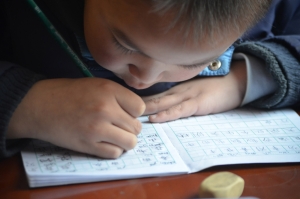“The 2030 Agenda must start with children, with their rights and dignity, their development, their empowerment through ECCE,” Ms. Irina Bokova, Director General, UNESCO.
The National High Level ECCE Policy Committee in collaboration with the
Institute of Early Childhood Development (IECD) have organised the first international ECCE conference in Seychelles, 16 – 18 February, 2017. The theme is “Building Resilient Early Childhood Care and Education Systems: Lessons of Experience.”
Ms. Irina Bokova opening the conference says, “Since 2010, Seychelles, a best practice champion, has worked all out to increase and enhance ECCE to share for the benefit of all, notably through South-South collaboration and working with the International Bureau of Education - UNESCO.” Watch
Irina Bokova's speech.
She emphasises, “ECCE is embodied in the comprehensive
Sustainable Development Goal 4 on education. This includes a target that should guide all our efforts by 2030, to ensure all girls and boys have access to quality ECCE, development, care and pre-primary education, so that they are ready for primary education.”
Since the UNESCO World Conference on ECCE in September 2010, which called on governments to adopt a broad and holistic approach to ECCE for all children, aged 0 - 8 years, Seychelles has made considerable progress in the implementation of
the Moscow Framework for Action and Collaboration. Through strong political will and an established governance framework, they have ensured an integrated and collaborative approach to ECCE provision.
Seychelles has been recognised by the IBE-UNESCO for its leading role among
the ‘General Education Quality Assessment Framework’ (GEQAF) countries (namely Botswana, Egypt, Gabon, India, Oman, Saudi Arabia, South Africa, Swaziland and Azerbaijan) in developing relevant programmes and institutionalising the monitoring and evaluation of progress towards its goals of achieving quality ECCE for all.
Since 2011, Seychelles has held a national biennial conference on ECCE with the support of UNESCO. Dr. Mmantsetsa Marope, Director of the IBE-UNESCO, congratulates Seychelles, “At the last national ECCE conference in 2015, I called on Seychelles to transform this institutionalised event into an international biennial. As would be expected, it stepped up to affirm its leadership. This is a milestone achievement for ECCE development and a proud moment for Seychelles. We call on other countries to follow their lead: to develop resilient ECCE systems to give each and every child a fair chance at holistic development.”
Proving the importance of ECCE, 18 countries comprising 350 regional and international delegates and local policy makers, educators, caregivers, non-governmental and civil society organisations will attend to share experiences and promote peer learning.
As well as Ms. Irina Bokova’s video message, other highlights include:
- Opening remarks by the Vice-President of the Republic of the Seychelles, Mr. Vincent Meriton and the CEO Of the Institute of Early Childhood Development, Mrs. Shirley Choppy.
- Keynote address by Dr. Mmantsetsa Marope, Director of the IBE-UNESCO.
- Launching Seychelles as an IBE-UNESCO Best Practice Hub and signing the Memorandum of Understanding.
- A virtual tour of ECCE in Seychelles ‘Sharing of experiences from building the Seychelles ECCE systems’, followed by a high level panel of key providers of ECCE services in Seychelles.
- Reflections by Dr. Hamood bin Khalfan Al-Harthi, the President of the IBE-UNESCO Council.
- A panel of country leaders of delegations, ‘Key issues to be addressed.’
- High-level roundtable, ‘Reflections and sharing of experiences by partners’ (TBC).
Live updates, webinars and expert commentary from the conference will be shared via Dr. Marope and IBE-UNESCO’s Twitter accounts: @IBE_UNESCO and @m_marope, as well as Facebook: @IBEUNESCO.
Contact information
Please also read our blog In-Progress Reflections:
Content, comprehensiveness and coherence in policies for early childhood: how the curriculum can contribute.
If you are interested in learning more about the IBE-UNESCO’s work on ECCE, how to become a best practice hub or want to share your challenges or successes, please
contact us.
